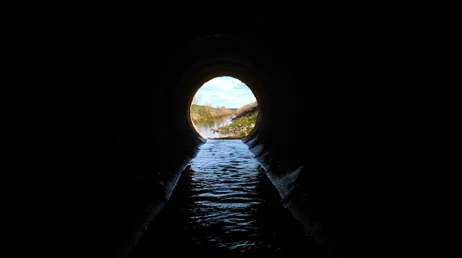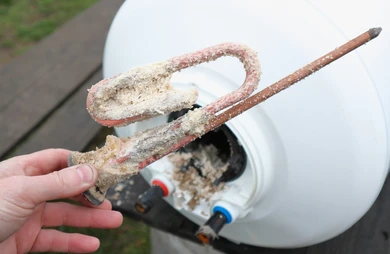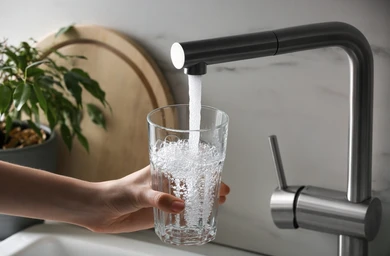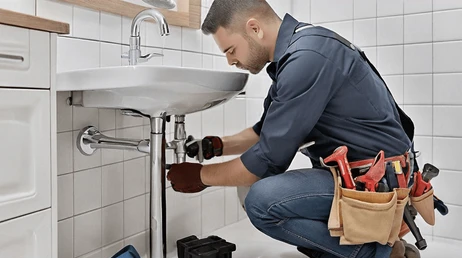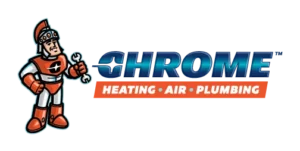Gas Pipe Repairs: How to Handle a Dangerous Leak
Service by Chrome Air Conditioning in Plano, TX Gas leaks are one of the most dangerous household emergencies that can arise unexpectedly. Natural gas is highly combustible, and even the smallest leak can lead to serious health hazards, explosions, or fires if not dealt with promptly. Handling a gas leak is not just about immediate response but also ensuring that the problem is professionally resolved to prevent future issues. In Plano, TX, Chrome Air Conditioning offers reliable and professional gas pipe repair services to protect you and your home from the dangers of gas leaks. In this article, we’ll explore the steps you need to take in case of a gas leak, signs of a gas leak, preventive measures, and why professional repairs by Chrome Air Conditioning are the best solution for homeowners in Plano, TX. What Causes Gas Pipe Leaks? Gas leaks can happen for several reasons. The most common causes include: Old or corroded pipes: Over time, gas pipes can rust and corrode, leading to weak points where gas can escape. Poor installation or damage: If gas lines are improperly installed or damaged by home renovations, they can begin to leak. Faulty appliances: Gas-powered appliances, such as water heaters, stoves, and furnaces, can develop leaks in their connections. Natural disasters: Events like floods, earthquakes, or strong winds can dislodge or damage gas lines. Signs of a Gas Leak Knowing the signs of a gas leak is critical to keeping your family safe. Here are common indicators that a gas leak may be present in your home: Smell of rotten eggs: Natural gas is odorless, but utility companies add a sulfur-like scent to help you detect leaks. If you smell rotten eggs, it’s a sign that gas is leaking. Hissing sounds: If you hear a hissing or whistling sound near your gas appliances or lines, it could indicate gas is escaping from a pipe. Dead plants or grass: Gas leaks outdoors can cause vegetation to die, so patches of dead plants or discolored grass around your gas lines may be a red flag. Physical symptoms: Exposure to natural gas can cause nausea, dizziness, headaches, or fatigue. If you or your family members experience these symptoms, a gas leak could be the cause. High gas bills: An unexplained increase in your gas bill could mean you have an undetected leak. Immediate Steps to Take if You Suspect a Gas Leak Gas leaks are dangerous and should be handled with urgency. If you suspect a gas leak in your home, follow these steps immediately: Evacuate the premises: Get everyone out of the house, including pets. Ensure that no one uses electrical devices or light switches on their way out, as even a small spark can ignite the gas. Avoid open flames: Do not light candles, matches, or any other flame while evacuating, as this can trigger an explosion. Turn off the gas supply: If it’s safe to do so, locate your main gas valve and turn it off. This is usually located near your gas meter. Call your gas company or emergency services: From a safe location, contact your gas company to report the leak. They will send a professional to assess the situation. If the leak is severe, call 911. Do not re-enter until cleared: Wait for the all-clear from professionals before returning to your home. Why You Need Professional Gas Pipe Repairs Gas leaks are not a DIY project. Attempting to fix a gas pipe leak on your own can be extremely dangerous, as improper handling can lead to fires, explosions, or health hazards. Here’s why you should trust professionals like Chrome Air Conditioning for gas pipe repairs in Plano, TX: Licensed and trained experts: Chrome Air Conditioning employs technicians who are fully licensed and trained in gas pipe repair. They follow strict safety protocols to ensure the leak is handled safely and effectively. Advanced equipment: Professionals use specialized tools and equipment to detect leaks that might not be visible or audible to the naked eye. Guaranteed safety: Repairing a gas leak is not just about patching the pipe. Technicians inspect your entire gas line system to ensure there are no other hidden issues. Peace of mind: After a professional repair, you can rest assured that the problem is resolved, and your home is safe from potential hazards. Preventive Maintenance to Avoid Gas Leaks While emergencies can’t always be avoided, regular maintenance can reduce the risk of gas leaks. Here’s what you can do to keep your gas pipes in good shape: Regular inspections: Have your gas lines inspected annually by a professional, especially if your home is more than 20 years old. Chrome Air Conditioning offers comprehensive gas line inspections to ensure everything is in proper working order. Maintain appliances: Keep your gas-powered appliances in good working condition by having them serviced regularly. Faulty connections or aging components in appliances like water heaters or stoves can lead to leaks. Install gas detectors: In addition to smoke alarms, consider installing gas detectors in your home. These https://chromeairconditioning.com/devices will alert you to the presence of gas even before you detect a smell. Be cautious with home renovations: If you’re planning renovations, make sure contractors are aware of the location of your gas lines to prevent accidental damage. Why Choose Chrome Air Conditioning for Gas Pipe Repairs in Plano, TX? With so much at stake, it’s crucial to choose a trusted and reliable service provider for gas pipe repairs. Chrome Air Conditioning is a leading name in the Plano, TX area for heating, air conditioning, and gas pipe repairs. Here’s why they stand out: Experienced technicians: Chrome Air Conditioning has a team of highly experienced professionals trained in gas leak detection and repairs. Their expertise ensures your home’s safety is a top priority. Prompt service: When a gas leak is detected, time is of the essence. Chrome Air Conditioning responds quickly to service calls, ensuring your home is inspected and repaired as soon as possible. Comprehensive services: Beyond gas pipe




